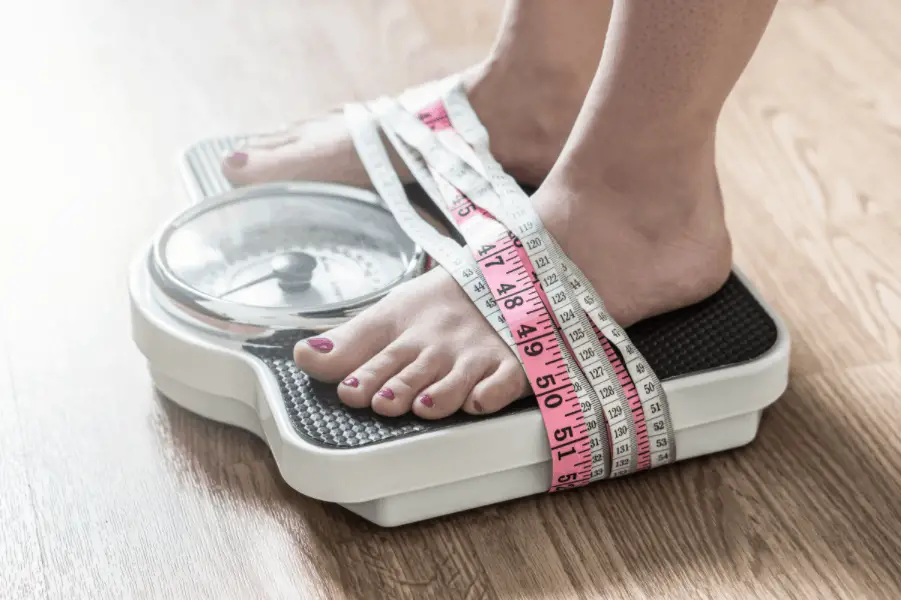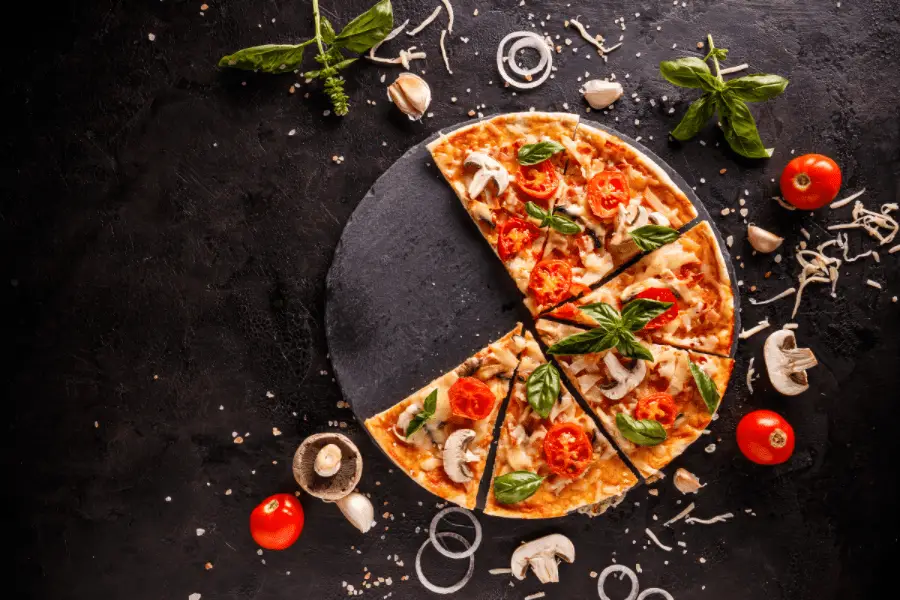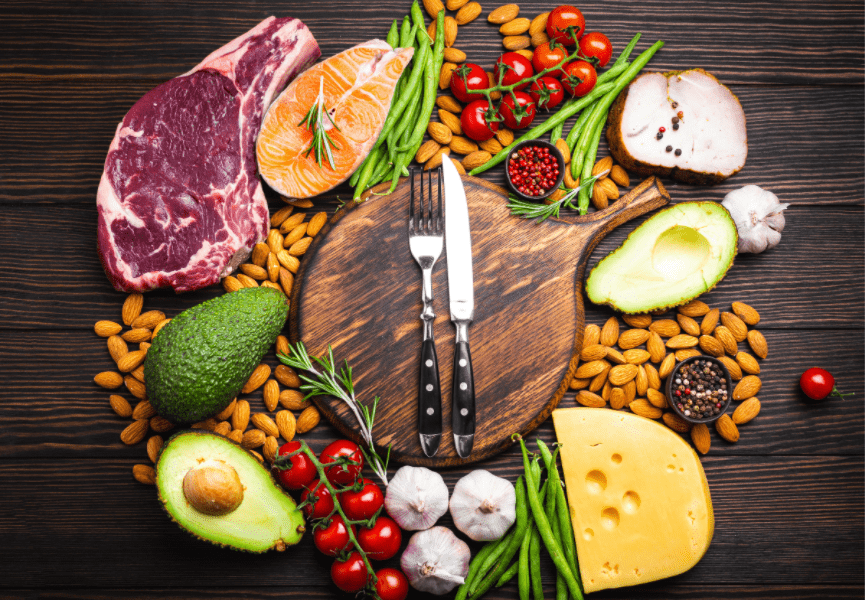There is one ultimate secret to getting lean. You won’t find the answer in gyms or personal trainers. The key is consistency, and to complement that, you need a robust cutting plan that can strip that stubborn body fat down to less than 12% so you can finally see your abs. We’ve got the knowledge you need, the food plan to lose weight. Read on to educate yourself on the dos and don’ts to getting shredded this year.
It’s important to understand that although your current training program may be well crafted to build muscle mass and break through tough plateaus, you won’t get the desired results until you apply the ultimate cutting diet plan. The ultimate cutting plan’s goal to produce your desired results is a lower body fat percentage whilst retaining as much muscle as possible.
We’ve all wondered, “what is the best time to eat carbs for fat loss?” or “how much protein to eat for a cutting diet?” or my favorite, “when should I eat carbs to lose weight?”. These questions require a more in-depth look at the overall topic of “How to get shredded?” and we’ve got just the cutting plan for you.
Before continuing, it’s crucial to understand that this is no easy task, and it’s understandable why most people aren’t walking around at less than 10% body fat. It’s not possible to look leaner simply by cutting out one of the weekly cheat meals that you effortlessly grab from your local pizza joint. That’s a habit that won’t be used in this cutting plan. This journey requires a reformed view of eating to look good and feel good without damaging your body.
Fitness To Diet is supported by its audience. When you purchase through links on our site, we may earn an affiliate commission at no additional cost to you. Learn more.
Table of Contents
What Is Cutting?
This goes by many names. Cutting, shredding, getting ripped, jacked, whatever you want to call it. The goal is to lose body fat while maintaining as much muscle mass as possible to look leaner through increased muscle definition. Cutting involves an intentional action of ingesting fewer calories than the body needs to maintain the weight, resulting in weight loss.
If you’re looking to lose water weight fast – then we suggest investing in an Infrared Sauna Blanket. This way, you can lose weight overnight and boost your endorphins, feeling refreshed and rejuvenated.
How To Start A Cutting Plan?
Firstly, it’s important to start by understanding what your Basal Metabolic Rate (BMR) is. Your BMR is “the number of calories you’d burn if you stayed in bed all day.”
You can use this link to enter your height, weight, age, and sex to calculate your BMR. Then click through to the Harris-Benedict Equation to adjust for your daily activity. Obviously, most people aren’t staying in bed all day; we move – but how much you move is important to how much you should eat.
For example – like a 6″2, 210lb male, my BMR is roughly 2,100 calories. I’m moderately active in that I sit at work most of the day but train 4-5 times a week. Therefore I multiply 2,100 by 1.55, and voila, my maintenance calories are 3,255.
Weigh-in / Test week

To check this is correct, start the first week of your cutting plan by weighing yourself on Monday, Wednesday, and Saturday morning with/without underwear (after your morning pee/💩). The goal when you weigh-in is to be consistent. Mornings are best. During the test, week ensure you’re eating the same amount of calories each day and check your weight. You should be more or less the same by the end of the week.
If you’re more, then your maintenance calories should be less, and if you weigh less, you should be eating more. Adjust accordingly before officially starting the cutting plan.
Larger bodies naturally need more calories, and smaller bodies require less. This step requires honesty to get accurate numbers. If you fudge the numbers, the weight loss goals will be unrealistic and progress difficult. A good indicator of this is the total number of steps you take a day. Most traditional ‘keyboard warriors’ like myself will average 5,000-6,000 steps given most of the day is spent seated. Unless you make an effort to walk and be active during your breaks and leisure time, this is classed as a sedentary lifestyle.
If you’re not able to track these necessary metrics, it may be time to invest in a smartwatch that can help you. Whether you’re team Garmin or Fitbit – both watches will do exactly what you need and more.
- Garmin Pay contactless payment solution lets you pay for purchases with your watch (available for supported cards from participating banks). The display resolution is 240 x 240 pixels
- Personalize your watch with thousands of free watch faces, apps and widgets from our Connect IQ store
- More than 15 preloaded GPS and indoor sports apps, including yoga, running, swimming and more. Physical size 43.4 x 43.4 x 11.7 millimeter. Fits wrists with a circumference of 127-204 millimeter (5-8 inches). Display size 1.2 inch (30.4 millimeter) diameter
- Use amazon Alexa built in to get quick news and information, check the weather, set timers and alarms, control your smart home devices and more all through the sound of your voice (third party app may be required; amazon Alexa not available in all countries)
- Based on your heart rate, time asleep and restlessness, sleep score helps you better understand your sleep quality each night. Also track your time in light, deep and REM sleep stages and get personal insights
- With a larger display and an always on option, your information’s always a quick glance away (always on display requires more frequent charging)
Calorie Deficit To Lose Weight
To lose weight, a reduction in your maintenance calories is required. The consensus in the health and fitness community is 0.5 – 2lbs per week. That means you could lose over 15lbs in 2 months if you dedicate yourself to this cutting diet plan.
How To Create A Calorie Deficit
Unlike most fad diets, we do not recommend reducing your calorie intake by a significant amount. Not only does this cause a physical drain on your body, but it takes a mental toll on your cognitive abilities. This journey should be about feeling good throughout the process. As we creep towards obesity, we already understand that there are greater chances of developing brain harming diseases. This should not be a sacrifice of losing weight and not one we recommend for this cutting plan.
Calorie Deficit Recommendation
Combing an exercise routine, you enjoy along with a manageable calorie reduction, will suffice. If you only exercise 1-2 times per week, then a 500 calorie deficit is recommended. However, if you’re training 3-5 times per week, then 250-300 calories. A 7 day a week routine, or perhaps if you regularly jog or cycle to work, would warrant no calorie deficit but stick to your maintenance calories. Too much exercise and too few calories are taxing on your body and dangerous.
Very important note. You might read elsewhere than males need to drop to 1,800 calories and females to 1,500 or fewer to lose weight. This is bad advice. The only way to safely lose weight and fat for the long term is to taper down. This is a gradual reduction of calories to allow your body to adjust accordingly. If you normally eat 4,000 calories a day and drop straight to 1,800, then yes, you will lose weight quickly. But your body will suffer and react horribly when you eat anything over 1,800 calories by going into starvation mode. Starvation mode means your body will hold onto as much fat as possible as only cares about surviving and not your goal for a 6 pack.
Gradually reduce your calories.
Counting Calories To Lose Weight
Counting calories may seem daunting at first, and it’s not your only option. However, it is the best one. We’ve already discussed that exceptional results require above average effort. Counting calories is hugely beneficial to anyone who wants to learn more about what they’re putting into their body and the macro nutritional content of the foods they eat. Without counting your calories, you could be completely off track and end up gaining weight and fail with your weight loss goals.
Myfitnesspal.com (or the Android / IOS app) is hands down the best free calorie counter to use. With over 19 million unique monthly users, there is no superior competitor. The best feature is the ability to scan barcodes of foods and easily input these into your meal plans each day. Super easy.
6 Important Points For Weight Loss:
Don’t use your memory: Humans have flaws, we have biases, and if we can cut corners we usually do.
Use an app like MFP: It will accurately track everything you need.
- Weigh your food: Until you get really good at estimating portions and food sizes, weigh your food otherwise you could be drastically off.
Get kitchen scales: See point above
- Record snacks: Any nibbles or snacks should be included, whether it’s an apple or half a cheeky Snickers bar. It all adds up
Understand and track your macro’s. Macronutrients are important to your fat loss goals. We’ll talk more about this below.

Nutrition
We’ve covered the basics of figuring out your BMR, how many calories to reduce your intake, and how to track this. The next step is understanding what foods to eat to lose fat.
What Are Macronutrients And What Do They Do?
Let’s begin by understanding what macronutrients are. Quite simply, macronutrients are carbohydrates, fats, and proteins. Our diet requires a balance of all three to function and survive.
There are different macro splits or ratios, depending on your lifestyle or health preference. For example, a person with type 2 diabetes is likely to find it easier to control the blood sugar levels on a low-carb diet rather than a high-carb diet. So their macro ratios might be Carbs: 5%, Fats, 65%, Protein, 30%.
Alternatively, someone on a low-fat diet would typically split their macronutrients: Carbs 40-45%, Fat 15-20%, and Protein 35-40%.
Typically, most people go with the latter option unless they’re focusing on high-fat diets such as Keto or Paleo.
As an example, my macro ratios of Carbs: 50%, Fat: 20%, Protein 30% would look like the table below. I’ve broken it down by what I’d be eating for a bulk (to gain muscle and weight), maintain, and cut. I’ve added 350 calories for bulking and reduced 350 calories for the cutting phase.
| Nutritional Information | Bulking | Maintenance | Cutting |
|---|---|---|---|
| Calories (kCal) | 3605 | 3255 | 2905 |
| Carbs | 451g | 407g | 363g |
| Fats | 80g | 72g | 65g |
| Protein | 270g | 244g | 218g |
To calculate this for yourself is simple. Divide your calories by the percentage split of Carbs, Fats, and Protein which will give you how many calories you’ll be eating from each macro.
E.g. 2,905 kcal / 50% Carb split = 1,452 calories from Carbs.
Then divide each by the number of calories per gram of macro.
Carbs – 4 calories per gram.
Fats – 9 calories per gram.
Protein – 4 calories per gram.
E.g. 1,452 calories / 4 = 363 grams of Carbs for cutting. Simple!
If It Fits Your Macros (IIFYM)
You may have heard of a dieting style called ‘If It Fits Your Macros’ or IIFYM. This is a simple concept to follow, using the table above as an example. You can eat whatever foods you like as long as you hit your macro numbers. This could mean that rather than a stringent diet, you can drop in some of your beloved junk foods such as chocolates, chips, pizzas, and donuts. We all know that junk food is very tempting, and this could be an option you employ.
If It Fits Your Macros then why not?

What Are ‘Micronutrients’ In food?
Micronutrients are all the vitamins and minerals that your body needs in much smaller amounts. Their purpose is to support your body’s normal function and survival, such as the immune system, bone health, blood clotting, the nervous system, and energy function, to name a few.
Micronutrients are also referred to as ‘essential vitamins’ as your body cannot produce them without an external source (such as food or supplements). A varied and healthy diet will be able to give you most of what you need to perform optimally; however, supplementation may be required on certain types of diets. Additionally, if you choose the IIFIYM route of dieting, be aware that junk food won’t contain a high enough content of micronutrients required compared to a clean diet.
Foods To Lose Weight Fast?
Eating the right foods can provide your body with the right nutrients they need to retain muscle and lose fat. Understanding what to put in your body is key, especially if you’re trying to lose that gut. There are some natural weight loss foods – but there are no miracle cures. A calculated and consistent approach is required to lose fat from your belly.
The foods you should focus on are typically the same whether you’re trying to gain weight and muscle, or lose fat and retain muscle.
- Meats, Fish, and Poultry: Sirloin steak, lean ground beef, pork tenderloin, chicken breast, venison, salmon, tilapia, cod
- Grains, Seeds, and Nuts: Wholemeal bread, oatmeal, brown rice, quinoa, almonds, walnuts, sunflower seeds, flax seeds, and chia seeds.
- Starchy Vegetables: Sweet potatoes
- Beans and Legumes: Black beans, chickpeas, lentils, kidney beans, and pinto beans.
- Dairy: Yogurt (full and low fat), cottage cheese, milk, cheese, whole eggs.
- Vegetables: Spinach, broccoli, leafy green salads, green peas, green beans, zucchini, asparagus, peppers, mushrooms, tomatoes, cabbage.
- Fruits: Berries, bananas, peaches, pears, oranges, apples, watermelon, cherries.
- Oils: Extra virgin olive oil, coconut oil, flaxseed oil, truffle oil (because you deserve it), MCT Oil (find out the benefits here)
This is by no means a list of the only things you should eat – but it will give you a good guideline to get started. To complement this, here are the foods you should limit:
- Alcohol: Negatively impacting your ability to lose fat and build muscle, and overall progress killer. Also – how much junk food do you eat the day after drinking.
- Processed foods: These foods typically have high levels of sugar, fat, salt, and overall calories which easily throws your macro ratios out of kilter.
- Added sugars: Apart from the obvious, candies, cookies, doughnuts, cakes, and ice cream, sports drinks and sodas are the worst for this.
Sample Cutting Diet Meal Plan
Below is an outline of a typical week. Having a boring, bland, and flavorless diet plan won’t help you stick to it or even meet your micronutrient needs. Keeping things fresh, varied, and simple is a great way to look forward to your food and stick to your plan to lose body fat.

Monday
- Breakfast: Scrambled whole eggs with spinach, mushrooms, and oatmeal.
- Snack: Cottage cheese and blueberries.
- Lunch: Lean meat burger (venison), brown rice, and broccoli.
- Snack: Whey protein shake and a banana.
- Dinner: Salmon, couscous, and asparagus.
Tuesday
- Breakfast: Protein pancake, peanut butter, and blueberries.
- Snack: 3 Hard-boiled eggs and fruit of your choice (apple).
- Lunch: Sirloin steak, sweet potato, and leafy green salad
- Snack: Healthy whey protein mug cake
- Dinner: Lean ground turkey and pasta with tomato sauce.
Wednesday
- Breakfast: Chicken sausage with egg and toast.
- Snack: Low-fat Greek yogurt and almonds.
- Lunch: Turkey breast, bulgur rice, and roasted peppers.
- Snack: Whey protein shake and pistachios.
- Dinner: Sea bass fish, basmati rice, homemade salad with tomatoes.
Thursday
- Breakfast: Chicken sausage, eggs, avocado on toast
- Snack: Biltong or beef jerky with raisins.
- Lunch: Chicken breast, baked sweet potato, and spinach.
- Snack: Whey protein shake in Greek yogurt.
- Dinner: Chinese styles stir-fry with chicken, white rice, broccoli, and garden peas.
Friday
- Breakfast: Oatmeal with peanut butter and honey.Snack: Jerky and mixed nuts.
- Lunch: Mackeral with lemon juice, black beans, and roasted vegetables.
- Snack: Homemade whey protein ice-cream with sliced almonds
- Dinner: Ground beef chili, bulgur rice, broccoli.
Saturday
- Breakfast: Ground turkey, egg with, sweet peppers, and salsa.
- Snack: Can of tuna with extra light mayonnaise and crackers.
- Lunch: Tilapia fillet, roasted potatoes, and sweet bell peppers.
- Snack: Whey protein shake and pear.
- Dinner: Diced lean beef with brown rice, pinto beans, sweet peppers, cheese.
Sunday
- Breakfast: Fried eggs, bacon, and avocado toast.
- Snack: Protein cookie and glass of almond milk.
- Lunch: Pork tenderloin, with garlic roasted potatoes, broad beans, and asparagus.
- Snack: Whey protein shake and strawberries.
- Dinner: Lean turkey meatballs, tomato sauce, and organic Parmesan cheese over your choice of pasta.
5 Reasons Why You’re Not Losing Weight
There are some quick and easy solutions to figure out why you’re not losing weight on a cutting diet.
- You’re eating too much: Quite simply, you’re not tracking your diet precisely which means surplus calories, or you’ve calculated your BMR wrong. Check both.
- Your protein intake is too low: A study from the Journal of Nutrition showed that a higher protein intake resulted in greater fat loss. Ensure you’re hitting your macros.
- You’re drinking way too much: Water is essential. Coffee and tea should be moderated, and everything else is a luxury. Don’t ingest unnecessary 300 calorie drinks like Starbucks’s crazy ‘mocha-chocka-make-you-fatta’ lattes.
- Too much low-intensity cardio: If you spend most of your training jogging or hours on the cross trainer, then you should rethink your strategy. This type of exercise burns more muscle than fat.
- You don’t sleep enough. We’ve talked at length about sleeping enough. Ensure you hit 8 hours to get rid of that belly fat.
Summary
We’ve covered a lot of content here, much of which you’ll need to re-read or do extra research on. The most important thing to take away is that if you’re already here, you’ve taken the first step in understanding that you need a change in your life and diet to lose that stubborn body fat. You now have the tools to get it on.



